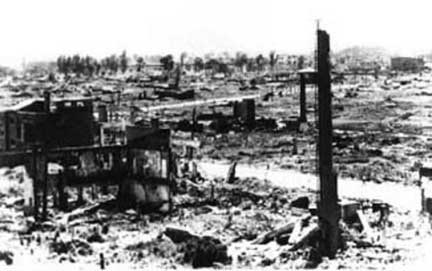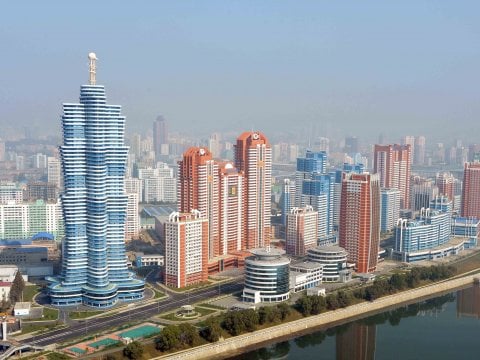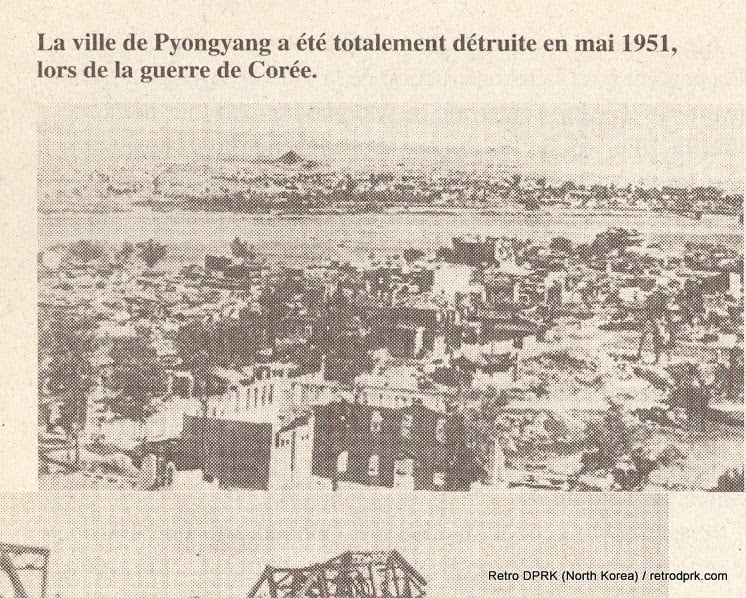

| Online: | |
| Visits: | |
| Stories: |
US Rejects DPRK’S Chinese Brokered Peace Talks – Continues Provocative Aggression against the North
North Korea Threatens America. They’re Coming, They’re Going to Blow Us Up
By Prof Michel Chossudovsky
Global Research, March 13, 2017
Region: Asia
Theme: Militarization and WMD, US NATO War Agenda
In-depth Report: NORTH KOREA, Nuclear War
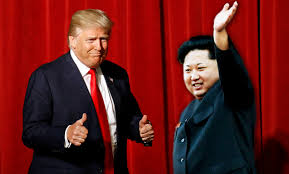
“And you know, we have this mad guy [Kim Jong-un], I guess he’s mad, either he’s mad or he’s a genius, one or the other, but he’s actually more unstable, even than his father, …” (Donald Trump, August 2016 during election campaign)
What was indelible about it [the Korean War of 1950-53] was the extraordinary destructiveness of the United States’ air campaigns against North Korea, from the widespread and continuous use of firebombing (mainly with napalm), to threats to use nuclear and chemical weapons, and the destruction of huge North Korean dams in the final stages of the war. …. (Bruce Cumings)
Trump believes that Kim Jong-un is crazy. Take him out.
The U.S. media concurs: the DPRK is a threat to US national security requiring a preemptive first strike THAAD missile attack in the name of “self defense”.
Who’s crazy? Kim or Trump? Never mind if it unleashes war with China and Russia.
According to the Heritage Foundation:
“The rogue regime in North Korea poses one of the most dangerous threats to U.S. national security interests. Pyongyang presents a multifaceted military threat to peace and stability in Asia as well as a global proliferation risk.
Pyongyang responds by saying that the US (including 29,000 troops stationed in South Korea) constitutes a threat to the DPRK’s national security, and they must defend themselves.
America, a threat to their national security?
They have no right to self defense.
The North Koreans are absolutely nuts.
Or are they?
General Curtis LeMay who coordinated the bombing raids against North Korea during the Korean War (1950-53) acknowledged that:
We went over there and fought the war and eventually burned down every town in North Korea anyway, someway or another, and some in South Korea too.… Over a period of three years or so, we killed off — what — twenty percent of the population of Korea as direct casualties of war, or from starvation and exposure? Strategic Air Warfare: An Interview with Generals (1988)
But it was all for a good cause, killing to preserve democracy.
The territories North of the thirty-eighth parallel were subjected to extensive carpet bombing and fire-bombing using napalm, which resulted in the destruction of seventy-eight cities and thousands of villages. As a result, almost every substantial building in North Korea was destroyed.
According to U.S. Major General William F. Dean:
“most of the North Korean cities and villages he saw were either rubble or snow-covered wastelands”.
According to award winning author and Vietnam war veteran Brian Willson:
“It is now believed that the population north of the imposed thirty-eighth Parallel lost nearly a third its population of eight to nine million people during the thirty-seven-month-long “hot” war, 1950-53, perhaps an unprecedented percentage of mortality suffered by one nation due to the belligerence of another.”
Forget about crazy rogue leaders.
Put yourself in the shoes of North Koreans, they’re fellow human beings.
Every single family in North Korea has lost a loved one during the Korean war. Ask them: who is the threat to “Their National Security”. And its not over. The DPRK has been threatened with a US nuclear attack for more than sixty years.
Imagine what would happen if a foreign power had attacked America, all major cities had been destroyed and 20 percent of the US population killed. How would you feel?
That’s what happened to North Korea.
Spread American democracy. Kill the Communists.
Who’s the threat to Global Security, North Korea or the United States?
Trump is just as crazy as Kim Jong-un.
Moreover he doesn’t have an understanding of 20th Century history, nor is he able to comprehend the unspoken consequences of a first strike US led nuclear attack.
The World is at a dangerous crossroads. The architects of US foreign policy are insane.
In the words of Stephen Lendman, Trump wants to ignite Korean War 2.0, which inevitably would lead to military escalation beyond the Korean peninsula.
Pyongyang in rubble (1953)
This is not The Trump Tower in New York, it’s Pyongyang. Is this what Trump wants to destroy? Again?
Pyongyang rebuilt today
The original source of this article is Global Research
Copyright © Prof Michel Chossudovsky, Global Research, 2017
Washington Rejects Diplomacy with DPRK. Is Trump Contemplating Korean War 2.0? Madness
By Stephen Lendman
Global Research, March 13, 2017
Region: Asia
Theme: Militarization and WMD, US NATO War Agenda
In-depth Report: NORTH KOREA
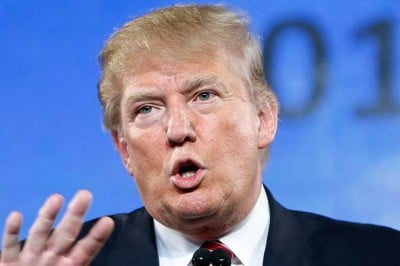
Truman’s war never ended. An uneasy armistice persists. The heavily fortified 2.5 mile Demilitarized Zone (DMZ) separates North and South. Occasional incidents occur.
America needs enemies to justify bloated military spending. Pyongyang is America’s longstanding Asian punching bag.
It’s wanted normalized relations for decades. Washington wants adversarial ones instead.
In response to its recent ballistic missile tests, neocon US UN envoy Nikki Haley denounced DPRK leader Kim Jong-un, calling him irrational, displaying “unbelievable, irresponsible arrogance…”
Korean War, 1950-53. The total destruction of Pyongyang by US forces
“(A)ll options are on the table,” she added. “We are making those decisions now and we will act accordingly,” provocatively suggesting possible war.
Washington rejects diplomacy. China asked the Trump administration to halt joint military activities with South Korea (Pyongyang considers preparations for war) in exchange for the DPRK suspending its nuclear and ballistic missile programs.
State Department spokesman Mark Toner rejected Beijing’s proposal, saying “(w)hat we’re doing in terms of our defense cooperation with South Korea is in no way comparable to the blatant disregard that North Korea has shown with respect to international law.”
No nations more egregiously violate it than America, Israel and their rogue partners in high crimes. North Korea never attacked another country throughout its post-WW II history. Truman’s war turned much of the country to rubble.
Taking its cue from Washington, South Korea also rejected halting its military exercises, its UN envoy Cho Tae-yul, saying “(t)his is not the time for us to talk about freezing or dialogue with North Korea.”
The Obama administration rejected a similar Pyongyang proposal in 2015, opting for continued adversarial relations.
China’s Foreign Minister Wang Yi urged negotiations to avoid a possible “head-on collision.” Its UN envoy Lie Jieyi warned “if you look at…the development of events now on the Korean peninsula, there is a real danger.” There’s a real risk.”
The alternative to China’s proposal is “escalat(ed) tension(s), and the situation may get out of control.” Provocations on the peninsula affect Beijing’s security, why it wants military confrontation avoided.
Next week, Secretary of State Tillerson meets with his Japanese, Chinese and South Korean counterparts, talks focusing on Pyongyang’s “advancing nuclear and missile threat,” according to the State Department.
Despite strong objections by Russia and China, citing a serious threat to their security, Washington began deploying Terminal High Altitude Area Defense (THAAD) anti-ballistic missile systems in South Korea.
Discussed in a previous article, they’re designed to intercept and down short, medium and intermediate-range ballistic missiles in their terminal phase. Instead of warheads, they rely on impact kinetic energy to destroy incoming missiles.
Deploying THAADs is more about targeting Russia and China than North Korea, both countries warning of escalating tensions and instigating an arms race.
Is Trump contemplating Korean war 2.0? Launching it would be madness.
Stephen Lendman lives in Chicago. He can be reached at [email protected].
His new book as editor and contributor is titled “Flashpoint in Ukraine: How the US Drive for Hegemony Risks WW III.”
http://www.claritypress.com/LendmanIII.html
Visit his blog site at sjlendman.blogspot.com.
North Korea and the THAAD Missile System: Potential Gateway to Military Escalation and Global Warfare
By Caleb T. Maupin
Global Research, March 13, 2017
China.org.cn 12 March 2017
Region: Asia
Theme: Militarization and WMD, US NATO War Agenda
In-depth Report: NORTH KOREA
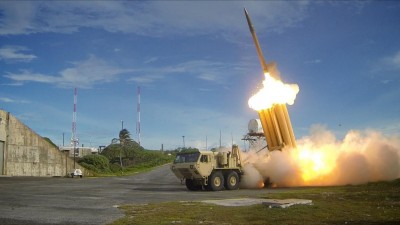
Imagine if over two thousand Chinese troops were stationed in Mexico.
Imagine that alongside these troops were F-16 fighter aircraft and A-10 bomber jets.
Imagine that in addition, the Mexican army had purchased a huge stockpile of Aegis Destroyers and other military hardware from China.
Imagine then, in such a context, China announced it was installing a high-tech missile defense system costing billions of dollars in Mexico, close to the U.S. border.
Under such circumstances there would be massive outcry, not just from the U.S. government, but the population at large. The American people would feel threatened, interpreting the action as an unacceptable provocation.
Those who defend the THAAD system argue that it is simply for defense; but this is not logical; it’s a non-sequitur. The THAAD system, modeled on Israel’s Iron-Dome, may be defensive, but its defensive nature assists in enabling strikes. The system shields U.S. and South Korean military forces, giving them the ability to attack North Korea, Russia, or China, and then deflect any response.
Furthermore, the system has a penetrating radar system allowing American forces to monitor not just the northern part of the Korean Peninsula, but deep into northern China.
It shouldn’t be hard for Americans to understand why China is less than thrilled that this project is underway, with the first components of the system already being unloaded. Furthermore, it shouldn’t be hard for Americans to understand why Chinese businesses might not be anxious to conduct new transactions in Korea at the moment.
The American media presents a situation as if China is being unreasonable in objecting to THAAD, and then somehow “bullying” Korean businesses with “unofficial sanctions.” This simply ignores reality.
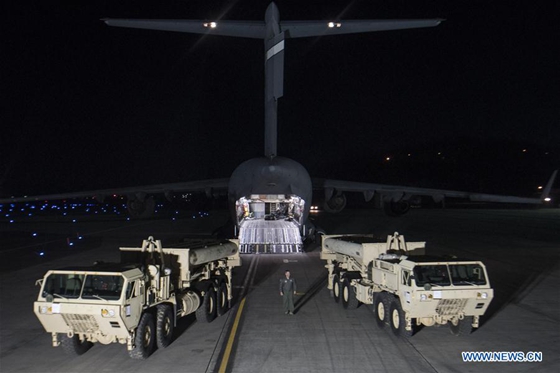
Photo taken on March 6, 2017 shows a part of Terminal High Altitude Area Defense (THAAD) battery arriving in South Korea. The photo was provided by the U.S. Forces Korea (USFK). [Photo/Xinhua]
Opposition to THAAD certainly exists in Pyongyang, Moscow, and Beijing, but it also exists within South Korea itself. Koreans are anything but unified on the issue. While the formal President certainly supported it, less than 4 percent of the population stands behind her, according to recent polls. Anyway, she was permanently removed from office on Friday and faces a pending impeachment trial for corruption.
Many Koreans have protested against the completion of the THAAD project. The demonstrators, by and large, are not subversives or radicals, but simply patriotic Koreans who believe hostile moves against their Chinese and Russian neighbors do not serve the country’s interest. Among opponents is the well-known politician Lee Jae-myung, who is one of the “big three” likely to run in the upcoming Presidential election.
President Donald Trump was elected in a dramatic upset, not because he promised to continue the status quo, but rather because he promised the opposite. During his campaign Trump said that U.S. military interventions around the world should be reduced, with the guiding principle being “America First.” Trump’s words on the campaign trial specifically talked about the situation on the Korean Peninsula and argued the role of the U.S. military in the region should be reduced.
Popular Democratic Party candidate Bernie Sanders, who was eliminated in the primaries, expressed similar concerns about the extensive military presence in far-off regions. Sanders has often criticized his government’s prioritization of military spending over public health, education, and other pressing domestic concerns.
Chinese leaders clearly do not seek some kind of confrontation with the United States; instead, they have called for greater diplomacy, and greater economic cooperation between the two countries, representing the two largest economies in the world.
East-West tension and ongoing violence in unstable parts of the world, is far more likely to be resolved with good paying jobs, hospitals, schools, housing, space travel, scientific innovation, and high speed rail, than with tanks, drones, warships, or new high-tech missile systems.
The question must be asked, why is this unpopular project being continued in the face of so much widespread opposition, not only from government officials, but from the people themselves? Why is it that forces which frequently invoke “democracy” and “the rule of the people” are carrying out an action that is contrary to the obvious, well-articulated desires of their populations? Furthermore, why are forces that talk about the need to “stabilize” the world, engaging in actions that will undoubtedly exacerbate, not resolve global tensions?
Caleb Maupin is a New York-based MintPress journalist and political analyst who resides in New York City focusing on U.S. foreign policy and the global system of monopoly capitalism and imperialism.
Opinion articles reflect the views of their authors only, not necessarily those of China.org.cn.
The original source of this article is China.org.cn
Copyright © Caleb T. Maupin, China.org.cn, 2017
Malaysia and the Question of North Korea. A US Led War against North Korea Would Affect the Entire Asia-Pacific Region
By Chandra Muzaffar
Global Research, March 12, 2017
Region: Asia
Theme: Militarization and WMD, US NATO War Agenda
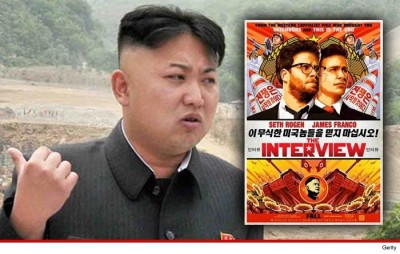
A US led war against North Korea would affect the entire Asia Pacific region. It is crucial that ASEAN countries take a firm stance against Washington’s first strike missile threats against the DPRK.
As outlined by Chandra Muzaffar, Malaysia has taken the lead. (M. Ch. GR Editor).
The Malaysian government has done the right thing in keeping the channels of communication with the North Korean Government open. It wants an amicable resolution of the friction arising from the murder of Kim Jong-Nam, the elder brother of the North Korean leader, Kim Jong-Un, at KLIA (Kuala Lumpur International Airport) 2 on the 13th of February 2017.
Prime Minister Najib Razak has made it very clear that Malaysia has no intention of severing diplomatic ties with North Korea.
The North Korean government has also adopted a positive stance. It has given a firm assurance to its Malaysian counterpart that the nine Malaysians who are still at the Malaysian Embassy in Pyongyang are safe and are allowed to carry on with their daily routine. However, they are barred from leaving North Korea.The Malaysian government has reciprocated by reiterating that North Koreans in Malaysia who are prohibited from leaving the country will not be harmed in any way.
These positive vibes from both sides should encourage the two governments to begin serious negotiations on a variety of issues pertaining to the current crisis. It is quite conceivable that the talking has already commenced. If a facilitator is required, the Chinese government would be the best candidate. It remains — in spite of its disillusionment with Pyongyang — North Korea’s only real ally. At the same time, China and Malaysia are close friends.
Apart from lifting the bans on nationals from each other’s country that Pyongyang and Putrajaya have imposed, the two governments will have to address the central question of Kim Jong-Nam’s murder and the investigations being conducted by the Malaysian authorities. North Korea will have to concede that Malaysia has been rational and professional in its approach. It has adhered to international law and established norms in the handling of cases of this sort. For these reasons Pyongyang should extend its fullest cooperation to Putrajaya.
Going on the basis of North Korea’s past record, it will not be easy to persuade its leadership to uphold the principles of international law. As a case in point, in spite of six sets of UN Security Council resolutions aimed at stopping North Korea’s nuclear and missile tests, it continues to conduct such tests. The latest was its firing of two powerful Musudon medium-range missiles on the 1st of March 2017 one of which flew 400 kilometres into the Sea of Japan.
North Korea has often argued that it conducts these tests because the United States of America and South Korea continue to hold annual military war-games in its vicinity. The Chinese Foreign Minister, Wang Yi, has proposed that North Korea suspend its nuclear and missile tests while the US and South Korea halt their military exercises. A quid pro quo approach he hopes can bring the three parties to the negotiating table.
Once negotiations begin other outstanding issues can also be addressed. The recent deployment of the US’s Terminal High Altitude Area Defence (THAAD) system in South Korea has undoubtedly exacerbated relations between South and North Korea and between South Korea, on the one hand, and China and Russia, on the other. China and Russia perceive THAAD as a system that alters significantly the balance of power within the region. THAAD, and the larger question of the denuclearisation of the Korean Peninsula should be discussed among all concerned parties.
In fact, denuclearisation was the focus of a six-party discussion from 2003 to 2008. North Korea, China and Russia, together with South Korea, Japan and the United States constituted the six parties and they met in Malaysia. Though the talks did not achieve their desired goal, there is no reason why an attempt should not be made to revive it. Immediate concerns such as missiles and THAAD rather than denuclearisation should be the main items on the agenda this time.
Dr. Chandra Muzaffar is the President of the International Movement for a Just World (JUST).
The original source of this article is Global Research
Copyright © Chandra Muzaffar, Global Research, 2017
Source: http://blogdogcicle.blogspot.com/2017/03/us-rejects-dprks-chinese-brokered-peace.html






